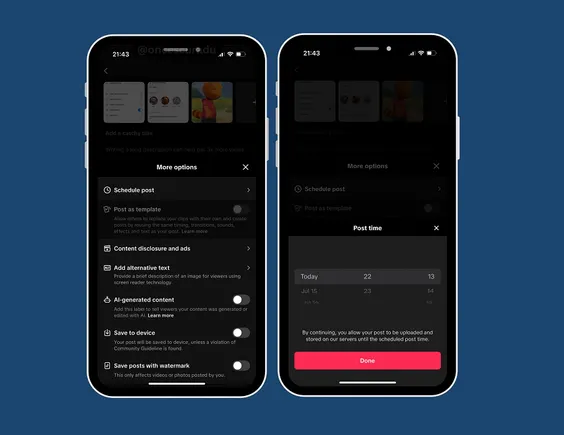The Silent Killer of Agency Growth: Ignoring Your Online Reputation
Did you know 97% of consumers read online reviews when browsing businesses? This is why solid reputation management for agencies is crucial when you’re looking to get clients for digital marketing or ways of keeping the current ones satisfied....

Did you know 97% of consumers read online reviews when browsing businesses? This is why solid reputation management for agencies is crucial when you’re looking to get clients for digital marketing or ways of keeping the current ones satisfied.
When your agency has a strong reputation, everything becomes easier. Building trust and credibility happens by itself, thanks to your reputation.
Online reputation is a whole package, including both positive and negative reviews. While positive ones openly support your success and growth, negative ones also offer you a great opportunity to reach new heights (if you know how to address them!)
If you are ready, we would love to share the key tips you need to navigate through the challenges you may encounter when managing your online reputation, besides explaining what reputation management for agencies is.
What Is Reputation Management for Digital Agencies?
The backbone of reputation management for agencies is monitoring and influencing the public perception of your business. This means staying aware of what is being said about your agency online and taking steps to shape that perception positively.
So, you should actively engage with clients on social media, respond to reviews and feedback, and address any negative comments promptly and professionally. (We will explain how to take these critical steps one by one and in detail in the tips section!)
Reputation management also includes creating and promoting positive content about your agency, such as case studies, testimonials, and success stories, to build credibility and trust.
Furthermore, leveraging SEO techniques to highlight positive mentions and lessen the impact of negative content can significantly help you enhance your agency’s online reputation.
But why should you take the trouble to spend time on your online reputation?
You should, because it directly impacts client trust and brand loyalty. A strong reputation is what will differentiate your agency from your competitors, besides attracting and retaining clients.
5 Key Tips for Creating a Reputation Strategy for Your Marketing Agency
With these 5 key tips, you’ll be able to ensure that you are on the right track in your online reputation journey.
Let’s dive deep into each one:
1.Online Reviews
Online reviews have crucial roles in a well-developed digital agency marketing strategy, as they are trustworthy proof of your hard work. However, it should always be kept in mind that, besides the attractive force of positive reviews, negative ones can deter new clients when they are not handled professionally.
This is why you should utilize tools like Google Alerts and online reviews for marketing agency platforms, which can help you stay on top of what’s being said about your agency and reply promptly.
Here’s how you handle negative reviews professionally in 6 steps:
Acknowledge the review quickly, ideally within 24 hours. Stay calm and professional. There’s no room for defensive or emotional reactions. Apologize if needed and address the reviewer’s concerns directly. Explain how you plan to resolve the issue if it’s valid. For complex issues, invite the reviewer to discuss the matter privately. After resolving the issue, follow up with the reviewer to ensure they are satisfied. If they are happy with the outcome, politely ask if they would update their review.The main idea of this perspective is to use negative reviews as learning opportunities by identifying common issues and making improvements to prevent them in the future.
2.Social Media Presence
Your agency’s social media presence can shape your reputation significantly. Regularly posting updates and engaging with your audience helps build a positive image. This includes responding to comments, sharing client success stories, and showcasing your agency’s achievements.
Use social media as a two-way communication platform.
Instead of sharing your perspectives, try to learn from your followers and interact with them too. Only in this way can you build a loyal community.
Here’s what you should do to effectively manage your social media presence:
Post consistently by maintaining a regular schedule. Engage actively and respond to comments and messages quickly. Showcase success stories by sharing case studies in different formats, such as long or short forms of video content. Promote achievements such as awards, major project completions, certifications, etc. Encourage interaction through polls, Q&A sessions, and interactive content.3.Client Feedback
Collecting and acting on client feedback shows you value their opinions and are committed to improvement. Implementing regular client surveys and follow-up emails after project completion can provide valuable insights into client satisfaction and areas for improvement.
Are you currently using these tools to enhance your service? If not, now is the time to start.
Do regular feedback sessions to better understand client needs. Implement a systematic approach to collecting feedback through post-project surveys. Act on feedback promptly.4.Crisis Communication Management
When it comes to surfing in the sea of crises, be sure that you know how to dance with the waves of criticism. To do so, you need a well-structured plan to ensure you can address any issue swiftly and effectively to minimize the damage.
Here’s an outline to craft a roadmap:
Conduct risk assessments and develop scenarios and specific responses for quick action. Form a dedicated team from PR, legal, and senior management. Establish internal strategies using email and messaging systems to keep employees informed. Craft honest, transparent messages addressing the crisis, steps for resolution, and preventive measures. Conduct regular crisis simulations and provide ongoing training to ensure preparedness and identify weaknesses. Use tools to monitor public sentiment and media coverage in real time.5.Competitive Analysis
Conducting a competitive analysis helps you identify the strengths and weaknesses of your competitors, allowing you to refine your own strategies.
Start by identifying your key competitors—those operating in the same market, offering similar services, or targeting the same audience. Knowing who your competitors are enables you to delve deeper into how they are perceived in the market.
Then, ask these questions:
How does my agency’s online presence compare to competitors? What are our competitors’ clients saying in their reviews? Which social media strategies are our competitors using effectively? What strengths do our competitors have that we can learn from? Where are our competitors falling short, and how can we capitalize on these gaps?Use various tools to monitor competitors’ online presence. For example, tools like Semrush, Ahrefs, and Sprout Social can provide you with insights into your SEO performance, social media engagement, and overall online activity.
You can gather data on how often competitors are mentioned online, the sentiment of these mentions, and the platforms where these discussions occur; you should detect where they might be falling short.
In addition, check platforms like Google Reviews, Yelp, and industry-specific review sites. Pay attention to the common themes in the feedback.
Understanding these will help you identify opportunities to improve your services and differentiate your agency. For instance, if clients frequently commend a competitor for their innovative solutions, it might indicate a gap in your offerings that you can address.
Also, conducting a SWOT analysis for your agency provides a structured approach to understanding your competitive landscape. This analysis allows you to evaluate internal and external factors affecting your agency and your competitors. For example, a competitor might have a strong brand presence but poor client retention rates. This information helps you leverage your strengths while addressing potential threats.
To see another example, you can check out this 5-minute-long video:
Social media analysis is another critical component.
You should observe how competitors engage with their audience on platforms like Twitter, LinkedIn, and Instagram. Note the type of content they share, how they interact with followers, and the overall tone of their communication. High engagement rates on certain types of posts can signal what resonates with your shared target audience. By comparing your social media strategy with that of your competitors, you can find ways to enhance your own engagement and reach.
Bonus: Here’s a brief video summarizing competitor analysis based on HubSpot’s free competitive analysis template and demonstrating how to utilize it step by step. (We loved it!)
How Does Reputation Management Accelerate Your Agency’s Growth?
Effective reputation management can significantly impact your agency’s growth. Let’s see how:
Building Trust
Trust is the foundation of any business relationship. In this case, positive reviews and testimonials are what build trust with potential clients.
For example, an agency that consistently receives high ratings on platforms like Digital Agency Network can see a significant increase in inquiries and conversions.
Trust leads to increased referrals and word-of-mouth marketing, both of which are invaluable for growth. When potential clients see a pattern of positive feedback, they are more likely to choose your services over those of your competitors. This trust is further solidified when existing clients share their positive experiences, enhancing your credibility and reliability in the industry.
Enhancing Visibility
A positive online reputation boosts your search engine rankings, making your agency more visible to potential clients, which means that you need high visibility on search engines to attract new business.
You can automate and streamline this process with the help of reputation management software for agencies such as Yext and Podium. They help you manage your online listings and reviews across multiple platforms and ensure that your agency is seen by the right audience.
When your agency appears prominently in search results, it increases the chances of attracting high-quality leads who are actively searching for the services you offer. Enhanced visibility also means your brand gets recognized more frequently, leading to greater market awareness and client acquisition opportunities.
Increasing Client Retention
Reputation management ensures that your current clients are satisfied and likely to continue their relationship with you. When an agency regularly responds to client reviews and feedback, it is generally perceived as more client-centric.
Clients feel valued when their feedback is acknowledged and acted upon. As a result, the chances of remaining loyal to your agency increase.
High client retention rates mean a stable revenue stream and reduced costs associated with acquiring new clients. Moreover, satisfied clients are more likely to provide referrals, further contributing to your agency’s growth.
Attracting Talent
A strong reputation management strategy not only attracts clients but also top talent. Skilled professionals want to work with reputable agencies that have a positive work culture and are known for delivering quality services.
With good online reputations, you can attract and retain talented employees, which in turn enhances your agency’s capability to deliver excellent results. A positive reputation signals a healthy work environment, career growth opportunities, and professional satisfaction.
Talented employees drive innovation, improve service quality, and contribute to a positive workplace culture, all of which are essential for your agency’s sustained growth and success.
Closing Remarks
Reputation management for agencies is never an option. It’s essential for growth and client retention. By actively managing your online reputation, you can attract more clients, maintain a positive image, and ensure long-term success.
A strong reputation builds trust and credibility, making it easier to gain and retain clients. Furthermore, it enhances your visibility online, boosts client retention, and attracts top talent to your agency.

 Kass
Kass 











![Email Automations That Help Turn Tiny Shops Into Mega Marts with Simon Trafford [VIDEO]](https://www.digitalmarketer.com/wp-content/uploads/2022/05/Simon_Thumbnail.jpg)



















